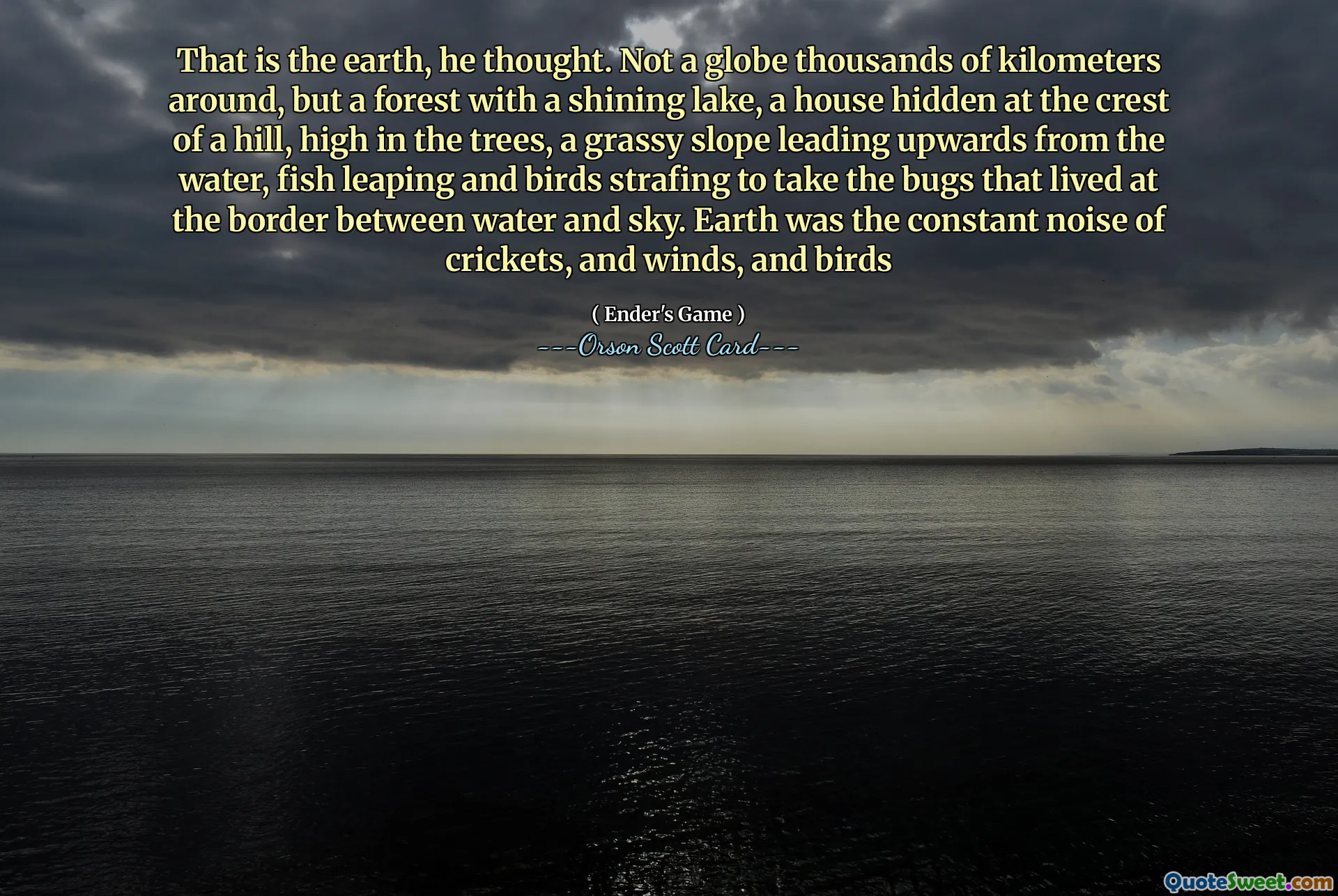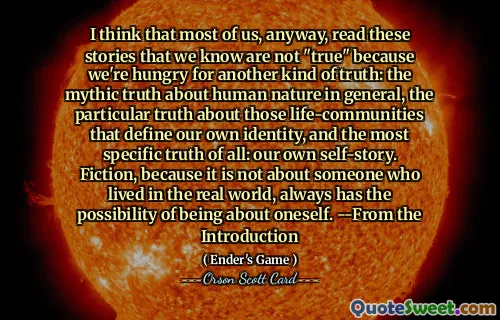
That is the earth, he thought. Not a globe thousands of kilometers around, but a forest with a shining lake, a house hidden at the crest of a hill, high in the trees, a grassy slope leading upwards from the water, fish leaping and birds strafing to take the bugs that lived at the border between water and sky. Earth was the constant noise of crickets, and winds, and birds
In Orson Scott Card's "Ender's Game," the protagonist reflects on the deep connection between nature and the Earth itself. Instead of perceiving it as merely a vast globe, he sees it as a vibrant ecosystem filled with life: a forest, a serene lake, and a hidden home. This perspective highlights the beauty and complexity of the environment, suggesting a simpler, yet richer understanding of the world around him.
The imagery evokes a sense of tranquility, with lively descriptions of fish leaping and birds soaring for insects, creating a soundtrack of nature's constant rhythms. This portrayal illustrates the importance of appreciating the small details of life that form a cohesive and harmonious existence, reinforcing the idea of Earth as more than a physical entity, but as a living, breathing organism intertwined with human experience.











